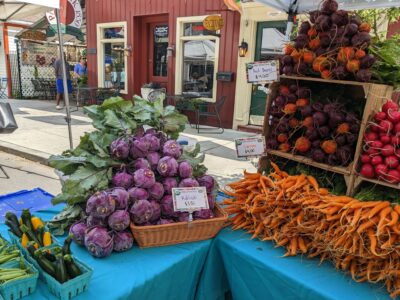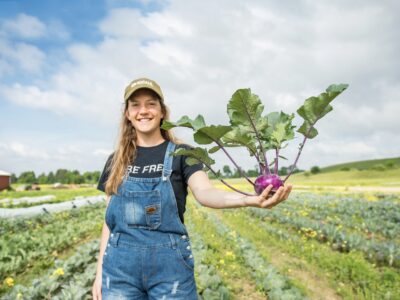Small-scale growers and communities work hard to empower themselves on the world’s stage. Across the globe, family farms struggle to earn fair wages and access global markets as easily as larger companies and corporations. Enter Fair World Project, a 501(c)(3) nonprofit that advocates for fair trade policies for even the smallest farmers.
Using a combination of advocacy and consumer education, Fair World Project supports dedicated producers and brands with the goal of leveling the playing field for honest and transparent use of labeling, certifications, and marketing.
“Fair trade has been distilled down to being a consumer product, a label on the side of coffee or a chocolate bar, but it’s much bigger than a bar,” said Anna Canning, campaigns manager for Fair World Project. “It’s about solidarity and building a movement for just trade.”
“Its opposite — unfair, or ‘free’ trade — is a system of trade based on extracting as much as possible from communities around the globe and using that land and labor to enrich just a handful of people in Europe and the U.S.,” Canning continued. “Over time, rules have been written to codify that system and hold it in place. … Those rules of free trade are really far from fair.”
Although 70% of the world’s food is grown using traditional organic techniques, smaller farms often have trouble accessing the same marketing power as large companies. They are also often unable to get properly certified.
Fair World Trade believes it’s essential for consumers to be able to trust the certifications they see on food packaging in markets.
The group works with certifiers to ensure the information is accurate and that all farmers can access it.
This work is particularly important given that the current food system has numerous inaccuracies, resulting in unhealthy food. The products, in turn, make consumers sick and leaves the actual organic, healthier farmers struggling to stay afloat.
Photo Courtesy Fair World Project
Fair World Project recognizes that many small-scale farms have moved away from the deceptive practices of this labeling and empowered themselves. The nonprofit brings together those smaller growers and the middle-person traders they use to get their produce to market. By collaborating, they have marketplace power.
By joining in, each farmer and trader agrees on specific principles to adhere to, including sustainable pricing designed to give the growers a living wage in exchange for using sustainable agricultural methods.
As smaller operations band together, consumers become more aware of how many growers use long-term, truly sustainable practices worldwide. Fair World Project is doing its part to ensure that the food industry is transparent and honest, making food safer, healthier, and more sustainable for future generations.





